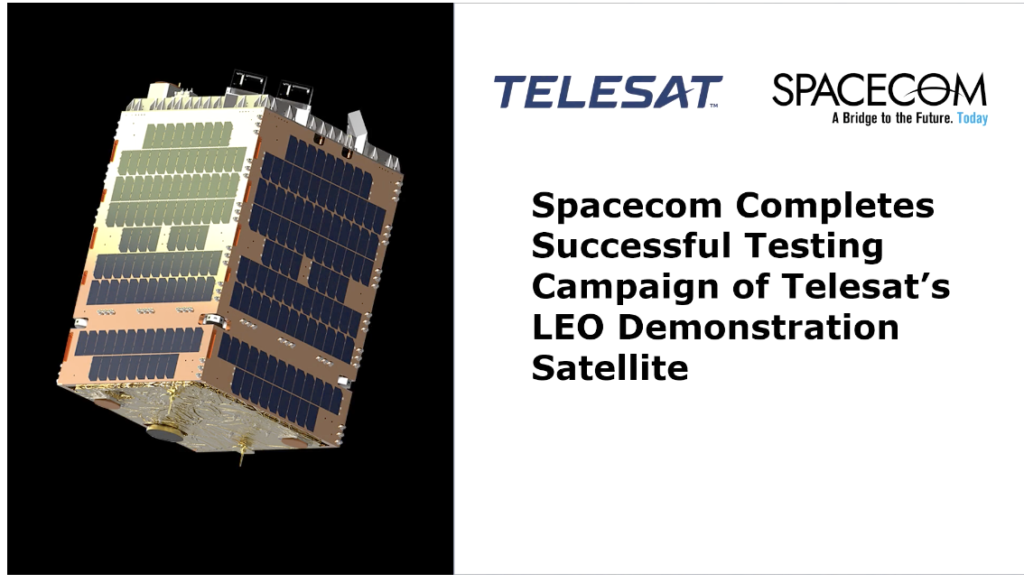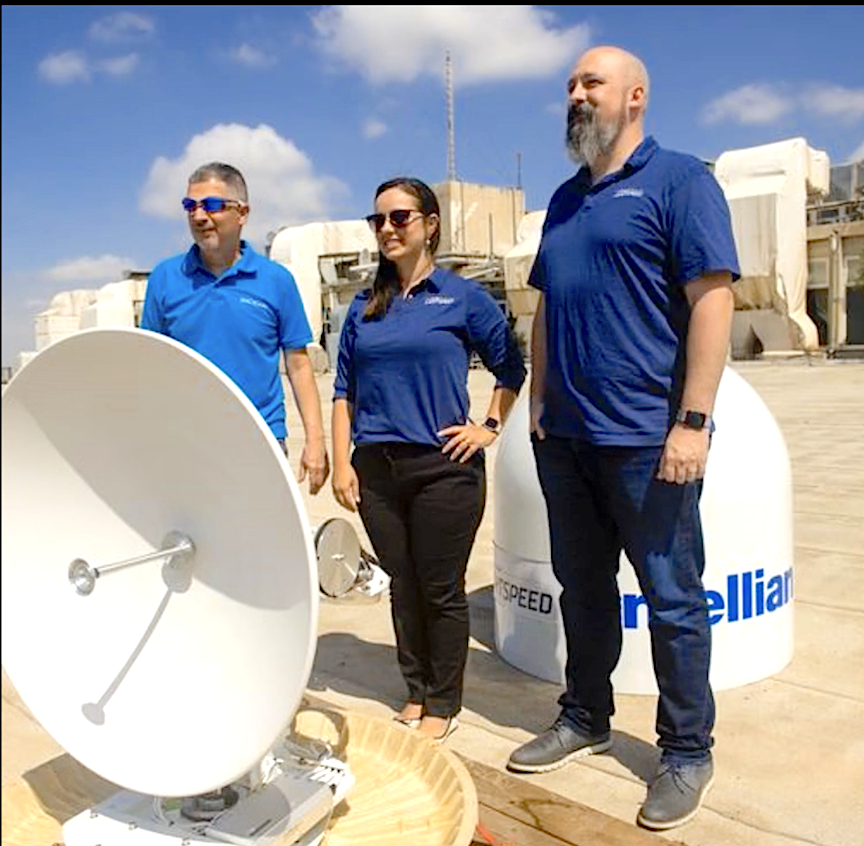
Spacecom, the satellite services provider and owner-operator of the AMOS satellite fleet, and Telesat, innovative satellite operators, announced the completion of Spacecom’s successful testing campaign with Telesat’s Phase 1 LEO (Low Earth Orbit) demonstration satellite.

The tests, conducted from Spacecom’s Teleport and labs facility located in the Judean Hills outside of Jerusalem, reached an average latency of below 30 milliseconds and data rates over 50 Mbps. In one case study, the companies tested backhauling for WiFi hotspots – such as in enterprise offices and remote communities using Spacecom’s DCP (Digital Community Platform).
The proof of concept tests for the satellite’s efficiencies showed speeds and complete system reliability consistent and similar to top-of-class land-based internet connectivity. The testing of various applications including video uploads, video conferencing, Cloud applications, and VPN used over 10 devices connected simultaneously to the hotspot. The download speeds were measured at over 10 Mbps and upload speeds of over 20 Mbps per device.

“Spacecom is working towards offering multi-orbit services and these steps with our partners at Telesat prove that we are on the right path to offer Telesat Lightspeed services in the future,” stated Ofer Asif, Senior Vice President of Strategy and BizDev at Spacecom. “Our technical and engineering capabilities, alongside creative and dedicated problem solving, are exactly what is needed to take advantage of our position in the satellite industry and deliver unique value to our customers.”
Telesat’s Chief Commercial Officer Glenn Katz commented, “We are excited to partner with the Spacecom team to expand their services portfolio with enterprise-class, high throughput, low-latency connectivity. With our programmable virtual network operator (pVNO) model and committed information rates backed by SLAs, Telesat Lightspeed provides a flexible and compelling value proposition for Spacecom’s next-generation offerings.”
